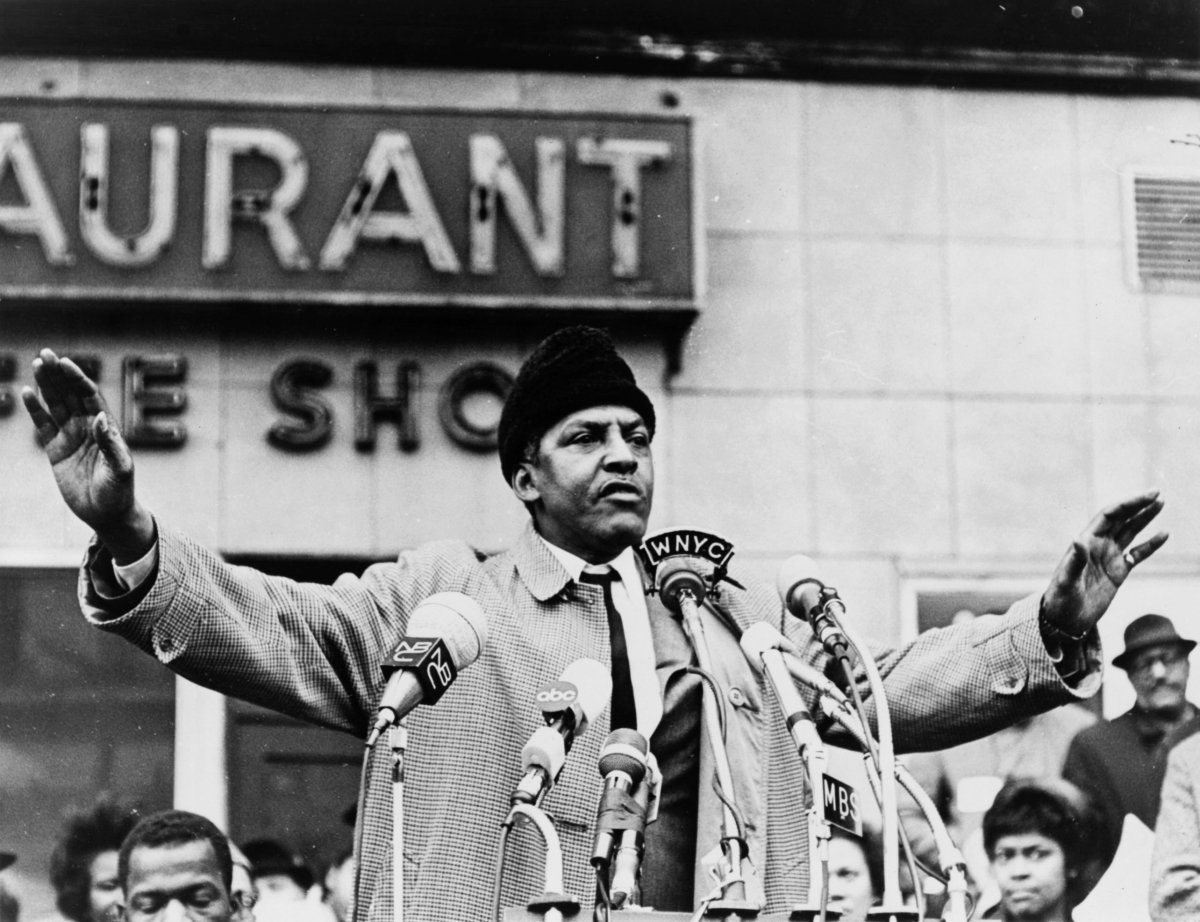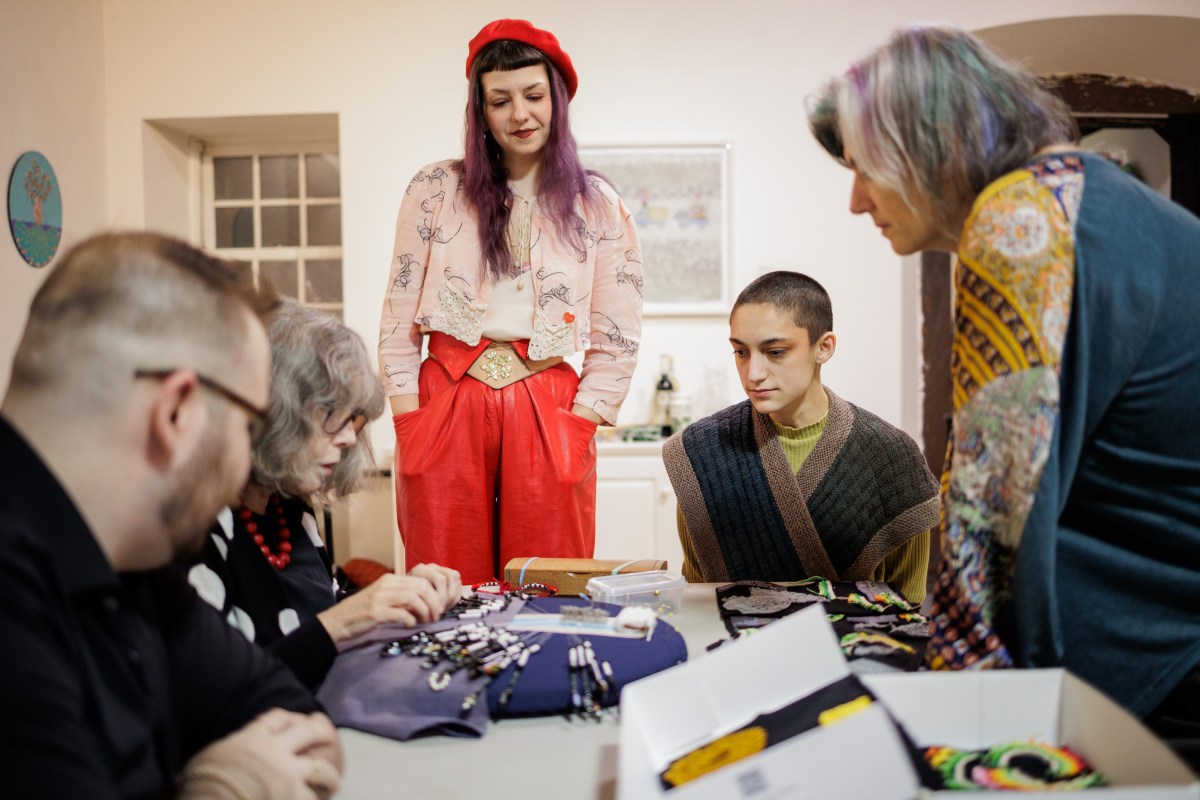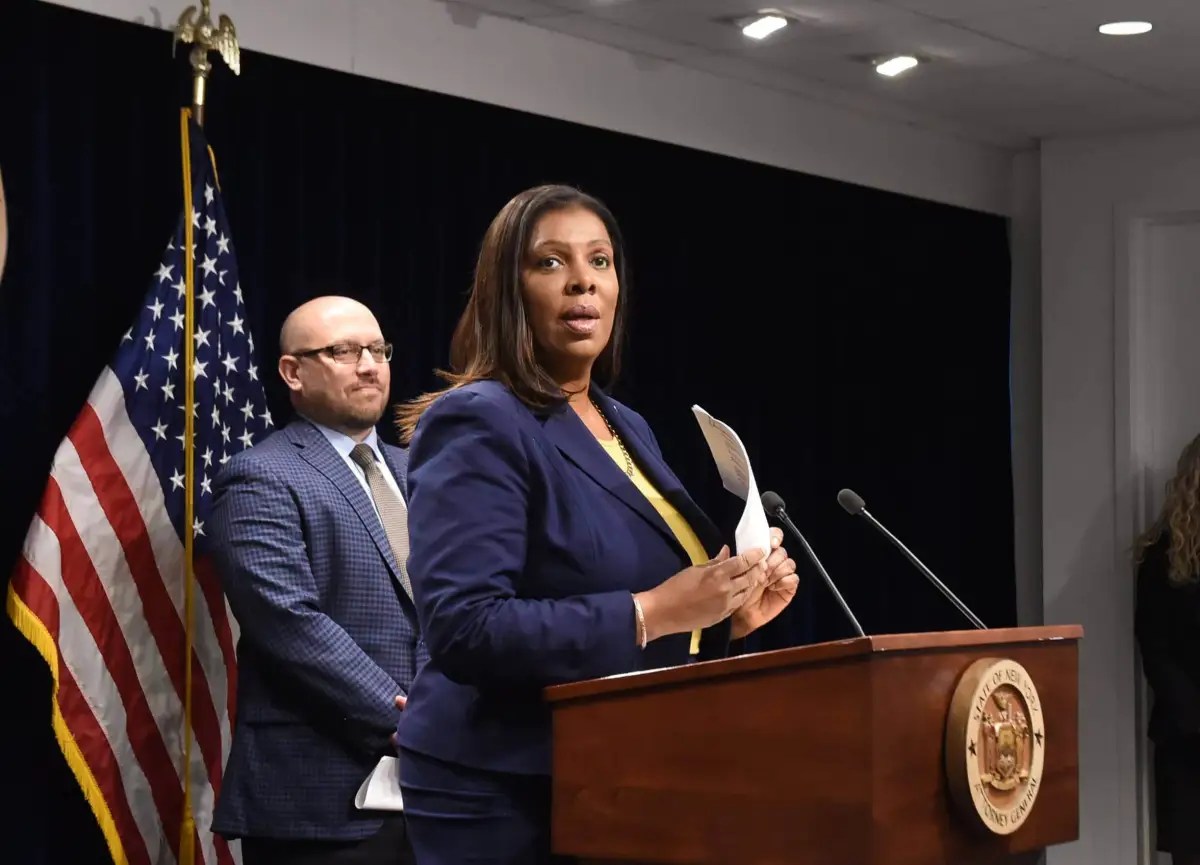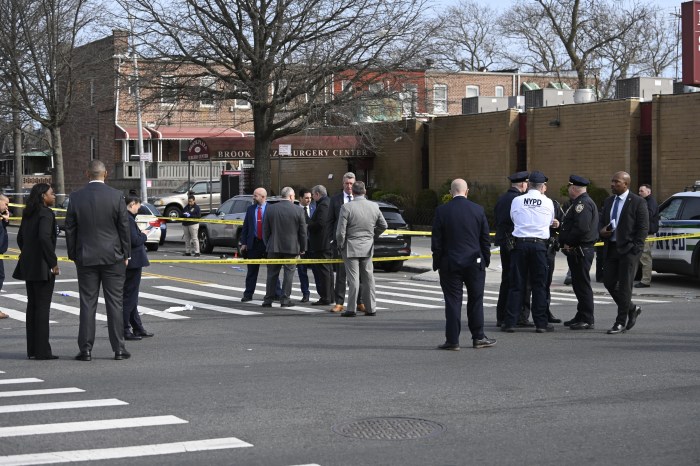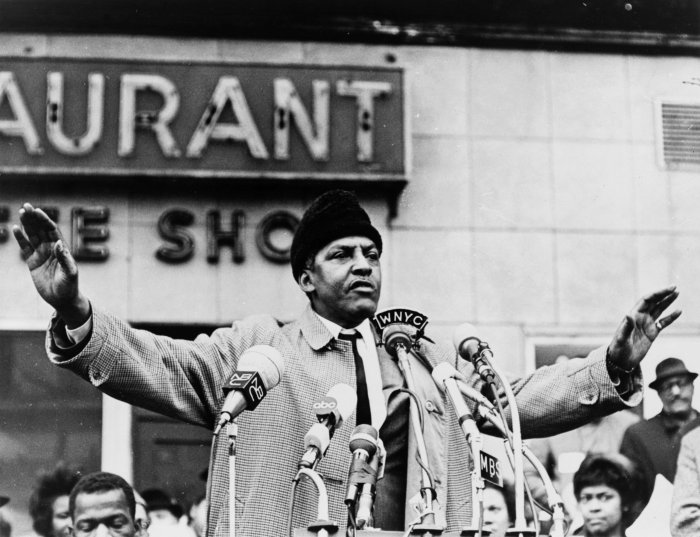By Lawrence lerner
On a crisp, golden Friday morning this past spring, students dressed in jeans, T-shirts and other informal attire filed intermittently into a classroom at the Institute for Collaborative Studies, or I.C.E., a small, progressive school that occupies the fifth floor of the former Stuyvesant High School, on 15th St. just west of First Ave.
Draping their bodies into chairs, they greeted one another casually before a girl with long black hair and an impish smile asked, “Where’s Tom?” as she peered around the room at her classmates. Another girl wearing her hair in a ponytail chimed, “Not here yet, I guess.”
Ten minutes crept by as the kids entertained themselves, either by talking amongst themselves or, for the studious, peering down at books. A moment later, an imposing figure well over 6 feet tall shuffled into the room wearing wire-rimmed glasses, khakis, a white button-down oxford shirt and striped tie. As he peeled off his jacket, he apologized for being late before playfully turning the tables on one of the kids.
“Molly, nice to see you at last. Thanks for blessing us with your presence today,” he said. “Hi, I’m Tom Duane. Remember me?”
The students responded with a combination of laughter and good-natured ribbing aimed at the new arrival, who by now had become the center of attention — and with good reason.
It’s not every day a New York state senator — let alone a charismatic one — teaches your high school civics class. But that is, in fact, what State Senator Tom Duane has been doing with his Friday mornings for some time now, not as penance for some personal sin but as a labor of love.
This week, he begins his sixth year teasing, inspiring, cajoling and motivating the kids at I.C.E to excel, and Duane, the faculty and students here wouldn’t have it any other way.
“I get a tremendous amount from teaching these kids,” said Duane, who first showed up at I.C.E. in 2000 accompanying his friend activist David Rothenberg, who was teaching a criminal justice workshop at the school.
“It then occurred to me that I could do what he was doing and teach my own class,” said Duane. “I actually had wanted to be a New York City public high school teacher, but when I left college in the mid-1970s, the city was laying off teachers.”
Duane, who became the first openly H.I.V.-positive elected official in the country when he won a seat on the New York City Council in 1991, made history again in 1998 when he was elected to the New York State Senate, becoming the first and only openly gay, openly H.I.V.-positive elected member of the Albany Legislature.
During his tenures in both the Council and State Senate, Duane has made it a point to visit schools in his district — including I.C.E. — speaking to entire school communities or engaging students themselves in discussions about L.G.B.T. issues, H.I.V./AIDS, education, school funding and other topics.
“The trick for my staff was always how to get me out of the schools once I got inside,” said Duane. “I always wanted to stay the whole day.”
After visiting Rothenberg’s class, Duane proposed teaching a civics class at I.C.E., which was opened in 1994, has just over 400 students in grades six through 12, and boasts a 15-to-1 teacher-student ratio. Principal John Pettinato loved the idea.
“Tom wanted to make local government more accessible for the kids,” he said. “That sounded great to me.”
They decided the class would meet once per week on Friday mornings, a slot that to this day is reserved for the kids, despite Duane’s hectic schedule.
“I’m not in Albany on Fridays, and it’s pretty much nonnegotiable that this hour is taken up by the class. I make it a priority,” said Duane.
Back in 2001, when Duane first began teaching at I.C.E., the class was an elective for juniors and seniors. A couple of years later, the administration expanded enrollment to include the best students in grades nine through 12, all in a single class. Needless to say, Duane’s course has been popular with students.
“I thought it would be cool to have a class with a state senator. I wanted to hear what he had to say about issues,” said I.C.E. junior Nikoo Fadaifard, who took Duane’s class last year.
According to Pettinato, kids fight to get into Duane’s class.
“We’ve even had students sneaking in from other classes. And kids who’ve had attendance problems seem to still show up to his class.”
Those at the school say the reason is Duane’s generosity and gregariousness.
“Tom’s a warm guy the kids really take to. They are comfortable giving him a hug, and they know enough not to fear that he is H.I.V.-positive,” said I.C.E. Admissions Director Meryl Meisler, who assisted Duane with his class when he began teaching at the school.
I.C.E. junior Hannah Galgiani, who studied civics with Duane each of the last two years, put it even more candidly.
“He was one of the first politicians to come out. I think a lot of us were, you know, really impressed,” she said. “You also have this preconceived notion of what a politician looks like. You’re thinking of this kind of stuffy suit all dressed up with a briefcase and saying, ‘O.K. class. This is what we’re going to do today.’ But Tom was, like, this really exuberant, happy guy who never talked down to us.”
The state senator ingratiates himself even more by going the extra mile for the kids, connecting them with internships, writing college letters of recommendation, and providing them with referrals when they or their family need assistance.
“Tom cares tremendously about making a difference in the lives of young people,” said I.C.E. Assistant Principal Brett Schneider, who currently assists Duane with his class. “And his familiarity with the current issues and players makes his class discussions invaluable.”
Class discussions, indeed, play a big role in Duane’s civics class, along with a plethora of other activities, including debates, reading and writing assignments, small-group work and presentations. He credits experience, I.C.E. faculty members and a 2004 seminar at Harvard’s Kennedy School of Government with helping him evolve as a teacher.
In conceiving the course, Duane approached the content formally at first, lecturing about the different levels of government and how they work, and explaining how the New York City Charter impacts city government. Soon, he brought current events into the mix, talking about the Electoral College in the 2000 presidential elections, for instance, and debating the pros and cons of this system with the students during his inaugural class.
Over time, Duane has added a host of other topics, including the war in Iraq and the draft, faith-based initiatives, education funding, sexual orientation and adoption, labor unions and municipal strikes, gambling and addiction and abortion.
In practice, the lectures and current-events discussions are mutually reinforcing, says Duane.
“When Christine Quinn was elected City Council speaker, I not only had the kids read news articles and talk about how she got elected but also used that to open a more formal discussion on the role of the mayor and City Council,” he said. “So, discussing current events opens up opportunities to talk about the structure of government and vice versa. Anytime they need background information, I provide it.”
Duane provides a dynamic learning environment in other ways, too.
To discuss gender equality in the workforce with his class, for example, Duane brought in Brenda Berkman, whose 1979 lawsuit against the New York City Fire Department helped her break the gender barrier and become the city’s first female firefighter.
Duane also takes his class to Albany once a year to meet his colleagues and to see their teacher and the State Legislature in action.
Next January, he will attempt to set up a “lobbying day” for the kids at the state capitol. If those sessions materialize, students will develop priorities and strategy, and actually lobby Duane’s colleagues on education funding and other issues.
“I’ll also set up my colleagues to ask tough questions of the kids and make them defend their positions,” Duane said.
In fact, developing arguments and defending them is paramount in his class, since “that’s what we do in government,” said Duane. To facilitate this, he also has the kids create a state budget.
“They have to develop priorities, which is interesting in itself. Then they have to put their priorities up against others’ and argue it out like in the Legislature,” he explained. “The kids have to be persuasive and stick to their guns, while at the same time listening to others and keeping an open mind. It’s a hard balance to achieve, but it helps them hone their opinions more precisely and gives them confidence.”
As challenging as that may sound, the students seem to have taken to it.
“When kids are uncensored and speak their mind freely, that makes for the best arguments,” said junior Fadaifard. “And Tom just lets us go at it and have long debates, which is the best part of the class.”
Duane appreciates hearing such affirmation, given how seriously he takes his role, even in the funniest of moments, which come quite frequently when you have Tom Duane as your teacher. Having him at I.C.E. has touched everyone in the school, not least of all Duane, who is grateful for the experience.
“I hope I’ve helped increase the kids’ knowledge and curiosity on how government works, how issues are debated and decisions made,” he said. “But I can’t imagine any student has gotten more out of my class than I’ve gotten from being a teacher. It’s a privilege to be here. It is, in fact, my favorite hour of the week.”
















